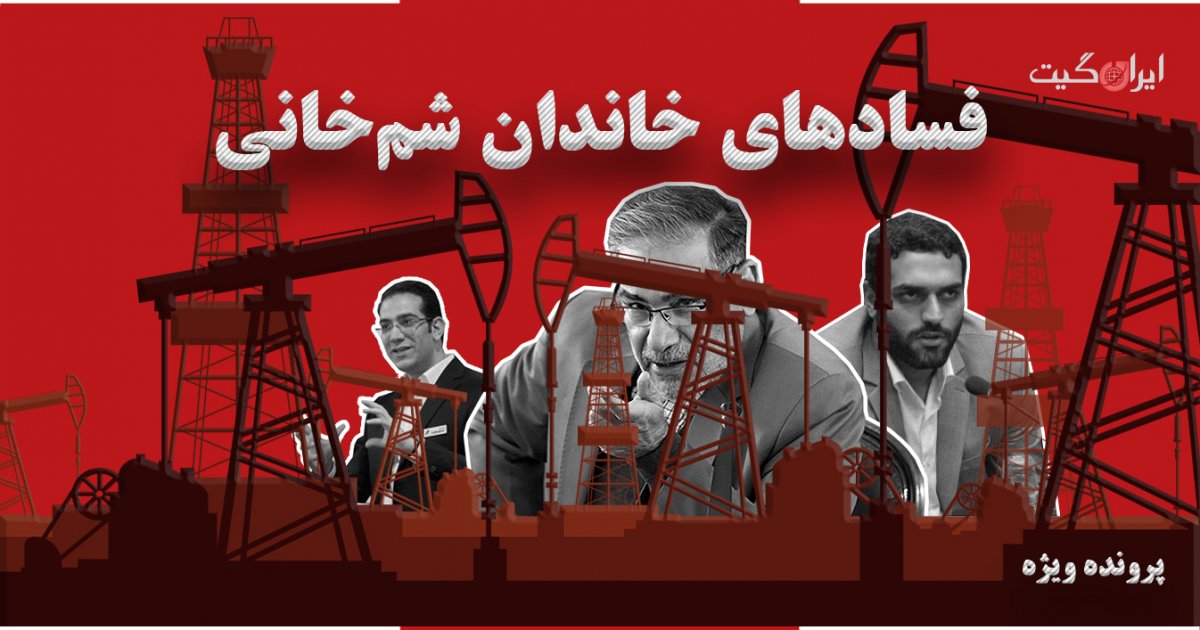The Corruptions of the Shamkhani Family Under the Protection of the Supreme National Security Council Part Two
According to Iran Gate, the corruptions of the Shamkhani family under the protection of the Supreme National Security Council, Ali Shamkhani is the only survivor of Rouhani’s government in Ebrahim Raisi’s cabinet, and that too in one of the most key positions, a position that requires the approval and yes of the leadership as a prerequisite. But what is the secret of Shamkhani’s longevity, especially with the many ideological conflicts between the government of Sheikh Diplomat and Judge Raisi?
The answer to the question is simple. In the years leading up to the end of the Government of Prudence and Hope, when Joe Biden managed to surpass Trump in the U.S. elections, hopes for reviving the Joint Comprehensive Plan of Action (JCPOA) increased. Hassan Rouhani’s bureaucratic government in Tehran was now facing an institutionalist government in Washington, committed to solving issues by strengthening diplomacy.
And this meant the best opportunity to revive the JCPOA, which was the greatest achievement of the Government of Prudence and Hope and had been destroyed by Trump. Of course, initially, Joe Biden showed a lot of patience and delay in starting JCPOA talks, and on the other hand, the Islamic Republic entered a new round of negotiations with the strange precondition of not negotiating directly with the United States.
The JCPOA revival talks were progressing slowly but relatively positively to the point where there were reports of removing the Revolutionary Guards’ name from the list of terrorist groups and removing the office of the Supreme Leader of the Islamic Republic from the sanctions list, which Hassan Rouhani recently confirmed. But at the same time, with the public revelation of the extensive financial corruption of Ali Shamkhani’s children in various media and the increased likelihood of action by security and judicial bodies against them, we suddenly witnessed a strange confrontation and conflict in the announcement of positions regarding the negotiation process from the government’s spokesperson and the National Security Council’s secretariat. After Biden’s victory in the U.S. elections and the suspicion of resuming JCPOA negotiations, it seems the role of the National Security Council in the JCPOA case became more prominent than before.
However, the council’s secretariat is managed under the supervision of the council’s secretary, who is simultaneously appointed by the president and also the representative of the leadership in the council, so ultimately it is considered part of the government. Now, part of the government takes a strong stance against another part and acts in line with the anti-negotiation and anti-JCPOA hardliners, who are from the ranks of the Revolutionary Guards, the Stability Front, and appointed security institutions.
This behavior was easily deciphered after a while. During the economic sanctions, especially in the field of oil sales and petrochemical products, the identification and approval of the qualifications of domestic companies and their affiliated trustees were the responsibility of the Economic Deputy of the National Security Council’s secretariat and, of course, under the personal supervision of the council’s secretary.
The father spread the trips full of blessings but tainted with corruption and favoritism, with the taste of looting the public treasury, at the disposal of his sons and their corrupt and newly wealthy partners, whose specialty was discovering new models of stealing from the nation’s pocket. And now, exactly at the critical moment of starting the JCPOA negotiations and the public revelation of these family corruptions, between the national interest of JCPOA revival and the family interest of avoiding judicial action against his sons’ extensive corruption and continuing the looting of the public treasury, he had to choose one, and Shamkhani’s choice was the easier, more profitable, and family option.
But after the end of Hassan Rouhani’s presidency, Shamkhani received the reward for aligning with the anti-JCPOA security and judicial institutions like the Revolutionary Guards Intelligence and the judiciary and was retained in the position of Secretary of the National Security Council.
The extent of the Shamkhani family and their partners’ corruption was so vast that they needed an international corruption and smuggling cartel. To this end, their shadow partner, who was a former employee of the shipping company and after some petty thefts there, had managed to reach a good position on the path of learning bigger thefts, deceived reputable international and dual-national traders in the region, like Salim Saeed, an Iraqi-British trader, who had no expertise or experience in the field of sales or transportation of oil products, and dragged him into this whirlpool, while they sat in the shadows and benefited from the proceeds of these thefts.
Eventually, what had to happen did happen. Salim was monitored by the U.S. Treasury and was placed on the sanctions list for helping the Islamic Republic circumvent its sanctions—you could read it as circumventing the Iranian people. The Wall Street Journal has extensively covered this case and introduced the identified trustee companies and methods.
The story of the revelation of the financial and moral corruptions of the Shamkhani family seems to have no end, and recently new cases of the brilliant corrupt actions of the National Security Council Secretary’s children have been publicized. But since Ali Shamkhani has previously auctioned off national interests and has not been able to pass up the benefits of tainted power and wealth, for now, the security and judicial apparatuses have closed their eyes and blind the eyes of protesters in the streets. But Shamkhani and his looting friends should know that this mill grinds in turn, and eventually, their turn will come too.
In the country, as the roar of lions passed and went, this barking of your dogs will also pass.
The one who had a horse, its dust settled; the dust of your donkeys will also pass.
English
View this article in English

